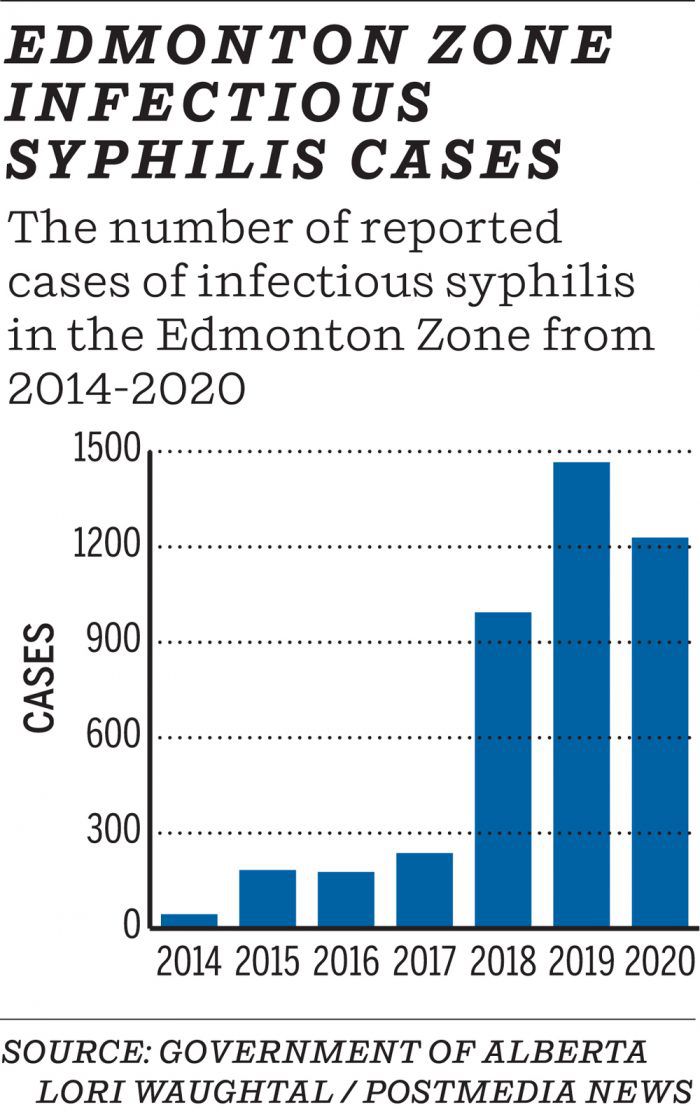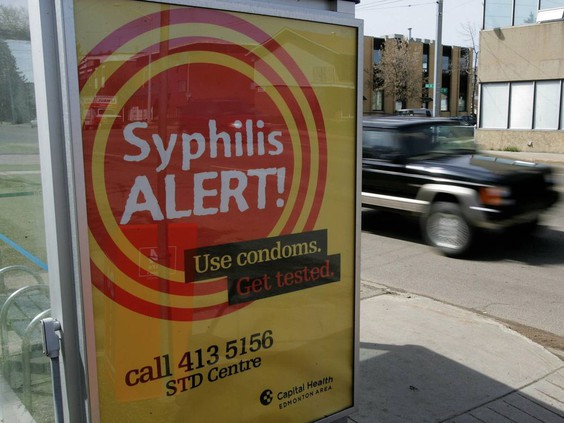Anna Junker
August 16, 2021
-Edmonton Journal
Health-care workers are struggling to keep up and identify people infected with syphilis as the Edmonton area recorded the highest number of cases in the province last year, a University of Alberta infectious disease expert says.
Over the last several years, syphilis cases have been steadily increasing. In 2014, there were 161 reported cases of the sexually transmitted infection, while in 2020, there were 2,509, according to data from the Government of Alberta.

Congenital syphilis cases on the rise
Singh said there has also been a “significant rise” in cases of congenital syphilis, where the infection is transferred to a baby from a pregnant mother. Since 2015, Singh said there have been 135 cases of congenital syphilis with about 30 infant deaths.
“The expected number of cases should be zero,” she said. “In Canada today, we should not be seeing any cases of congenital syphilis because we know how to prevent and treat this infection.”
An individual can be tested for syphilis and other STIs through a blood or urine test and penicillin is the treatment of choice, often through a single injection, Singh said.
“Pregnant women who access prenatal care are offered testing for syphilis, and if treatment is provided early in pregnancy, it can prevent the severe consequences to the infant,” Singh said.
“But the trouble is that many of the women who have delivered infants with congenital syphilis have not been presenting for prenatal care until later on in the pregnancy.”
Addressing root problems
There are a number of factors contributing to the rise in syphilis cases, Singh said, such as the use of mobile dating apps. There has been a “significant association” between stimulant drug use, particularly methamphetamine, and syphilis.
“Stimulant drugs not only stimulate the sex drive but also disinhibit behaviour and make it more likely that people will engage in risky sexual behaviour,” she said.
Singh said more needs to be done to prevent individuals from getting infected in the first place by addressing the social determinants of health.
“I don’t think that enough is being done to support housing. We continue to see a huge number of people who are affected by homelessness, addictions and mental health issues, poverty. Indigenous people are disproportionately affected by this,” she said.
“Until we address some of these root problems, I don’t think that we’re going to make inroads into managing this.”




